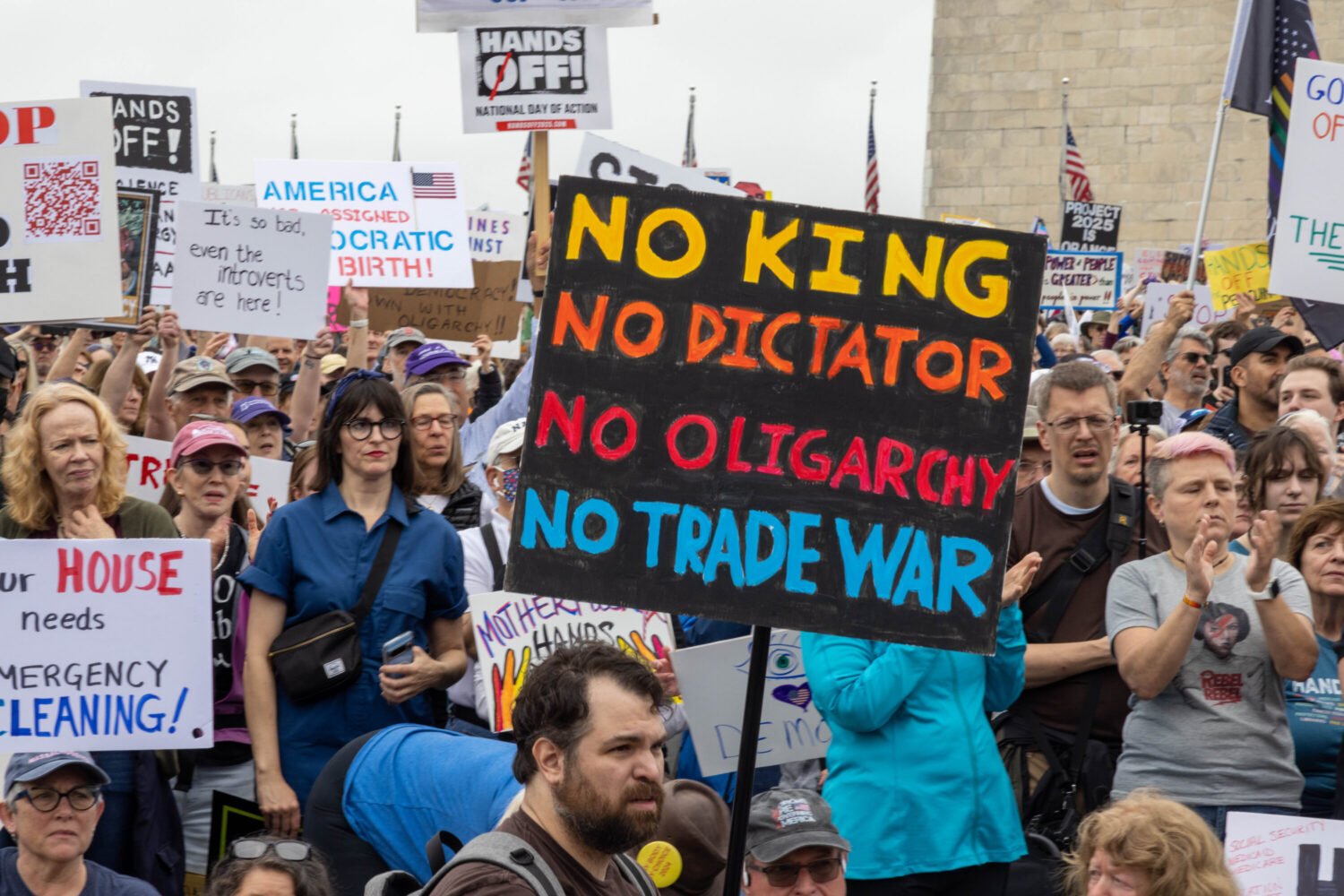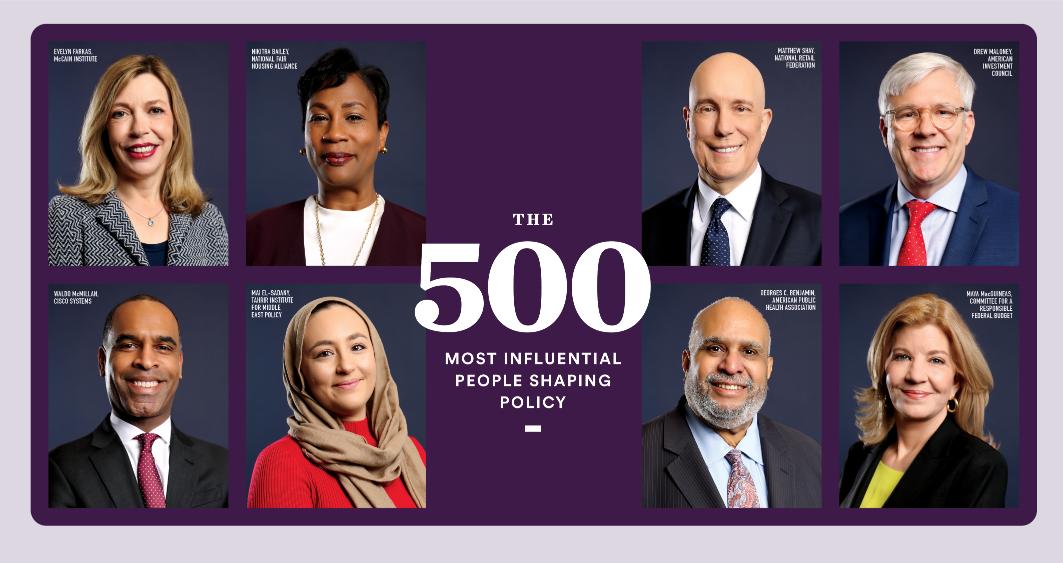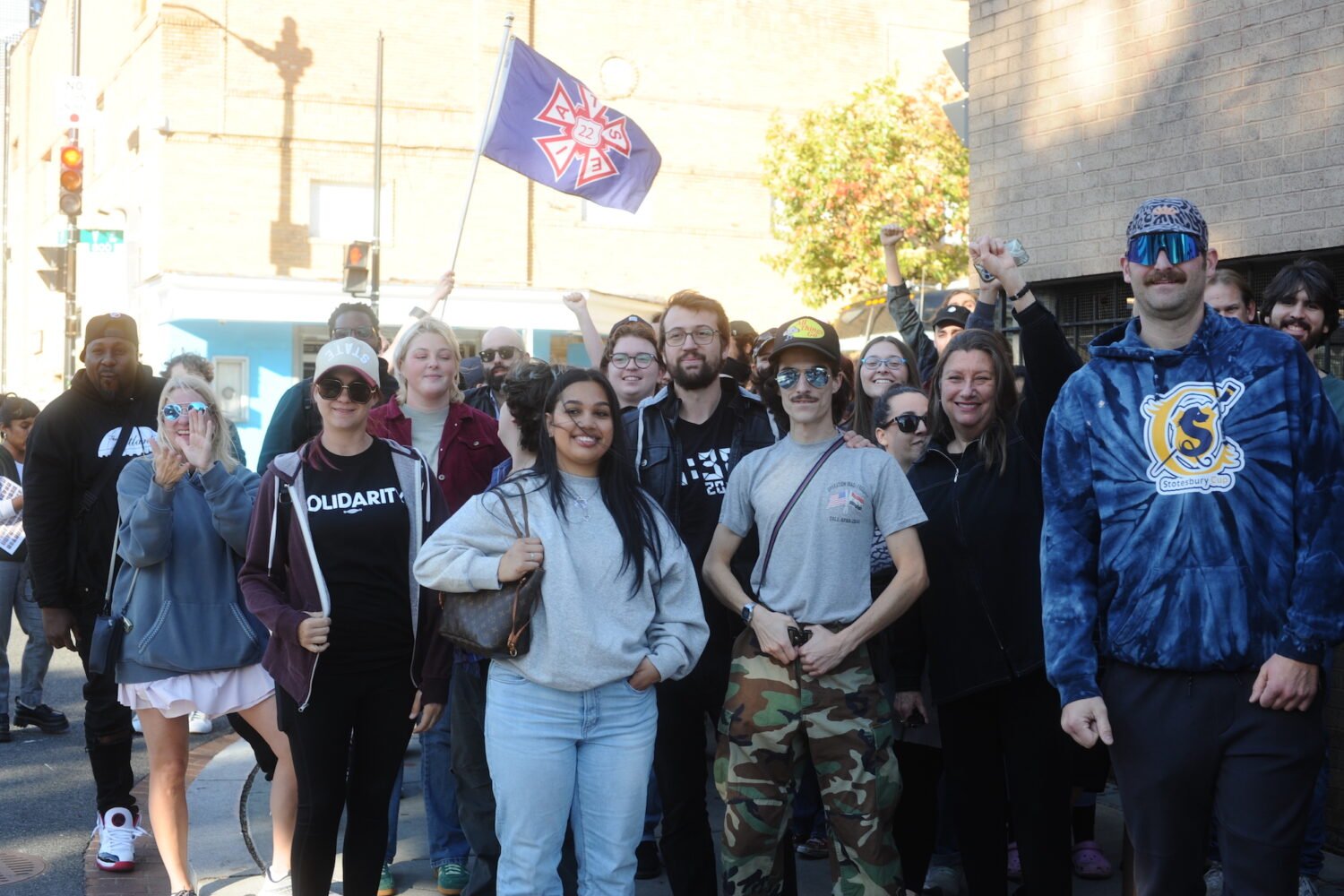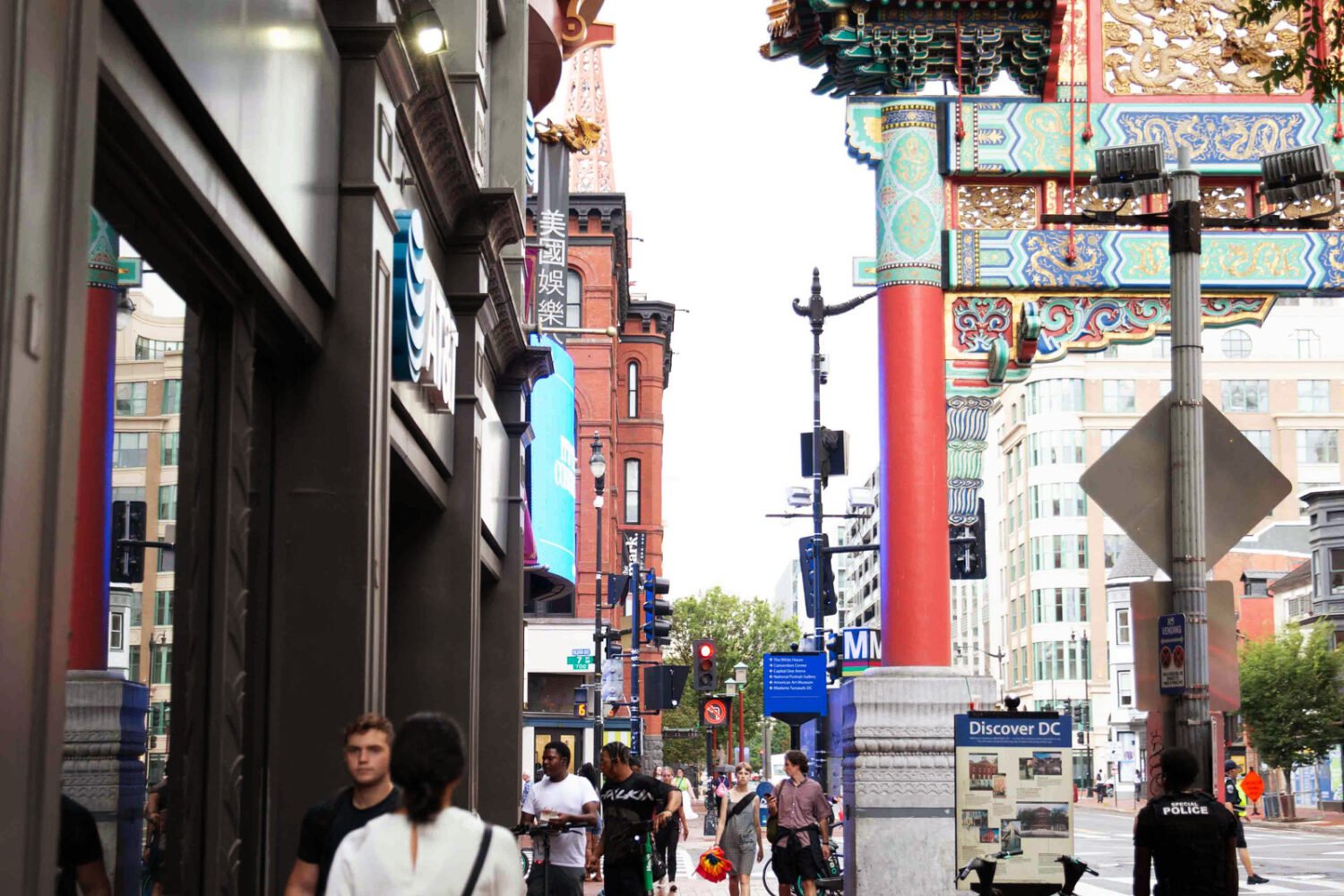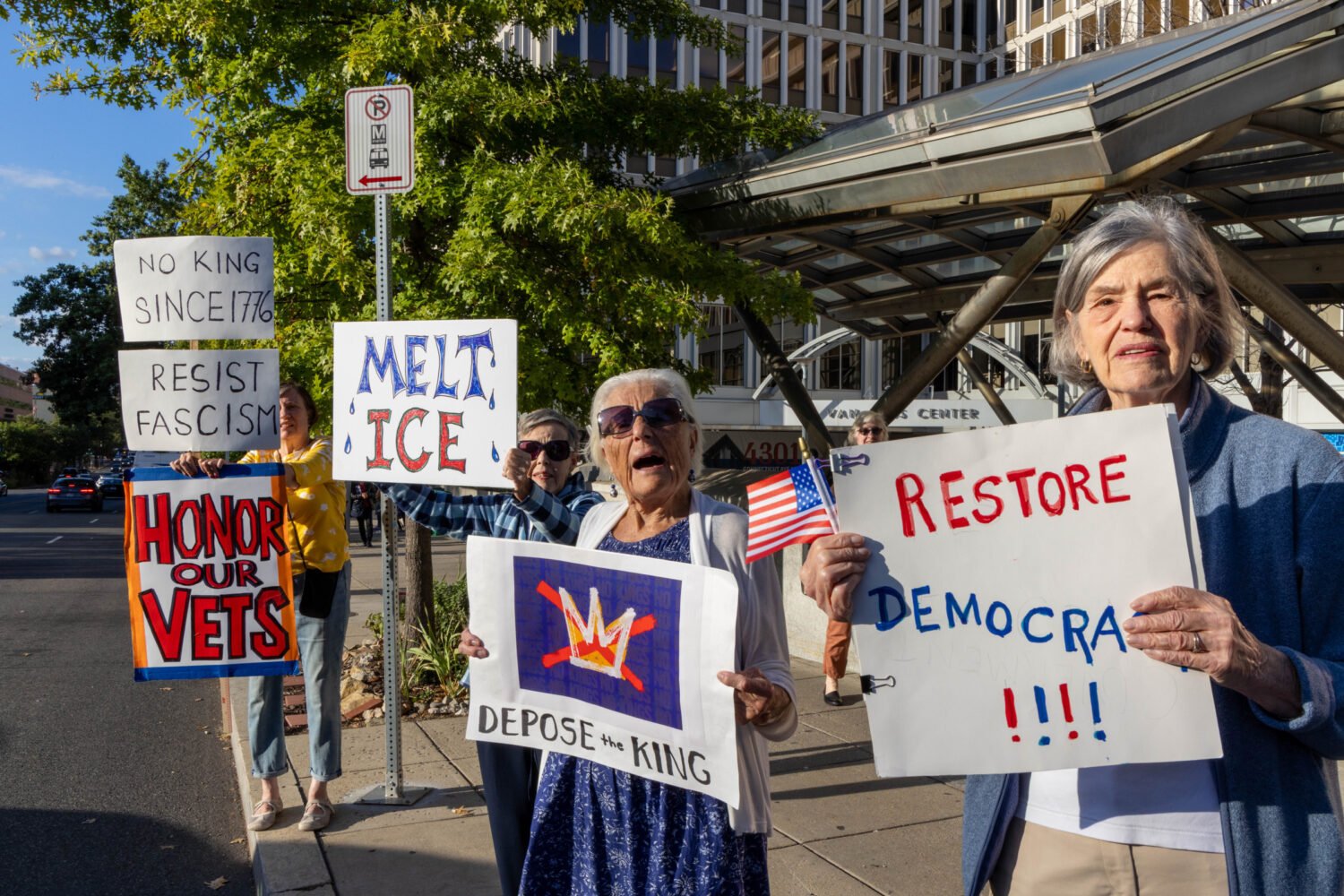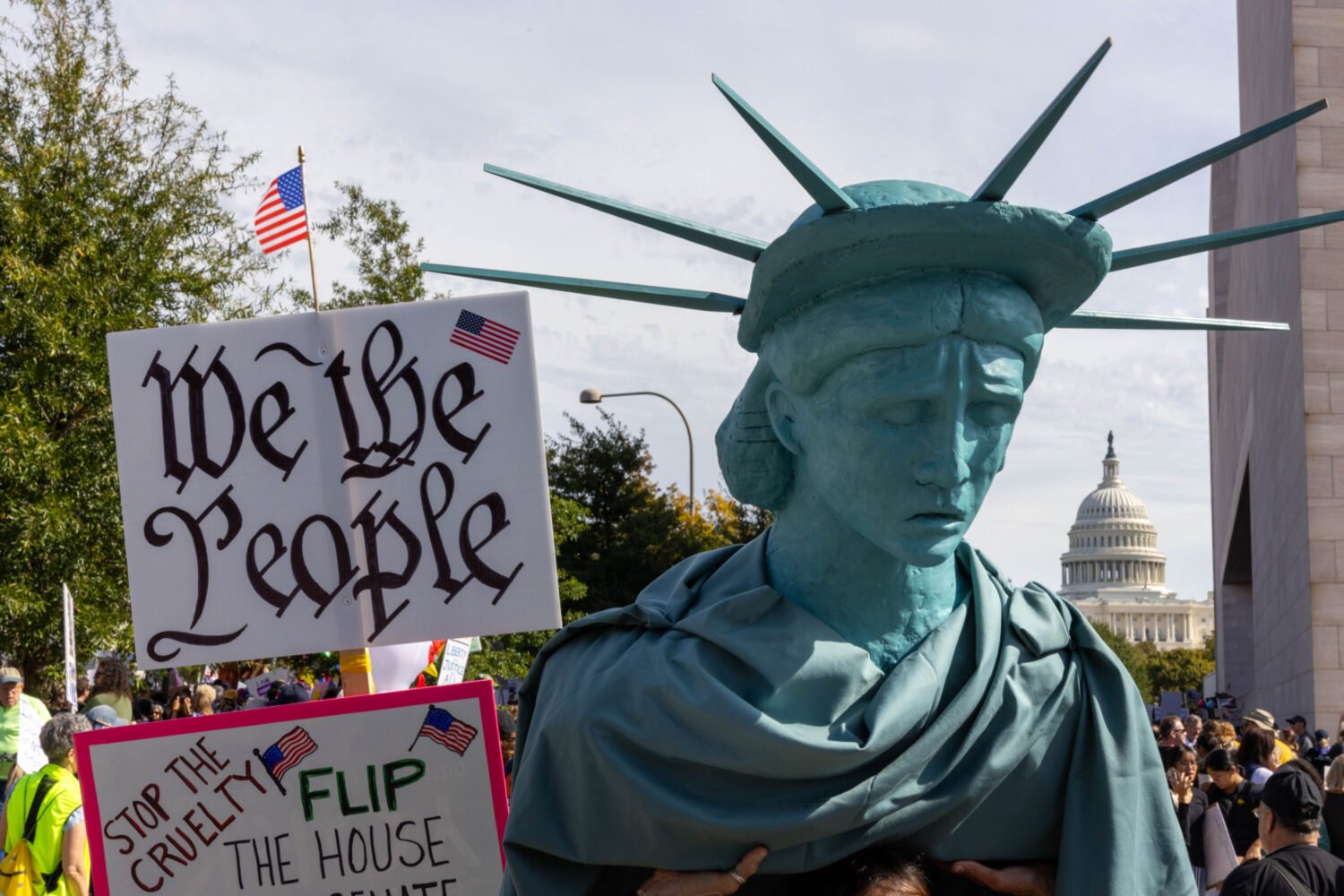Standing at a grey lectern underneath an enormous American flag suspended across the ceiling, Jared Longshore prepares to address the crowd. Dressed in a blue suit and striped tie with an auburn beard and professorial glasses, he looks like a policy wonk giving a speech at the Heritage Foundation. Political paraphernalia hangs on the walls: a plaque from the Republican National Convention, a garishly yellow Gadsden flag, framed copies of the New York Times announcing conservative victories. It’s a scene one might find at any conservative political fundraiser in DC.
And then everyone in the room kneels to confess their sins.
Longshore, a pastor, is leading a “church planting effort”—that is, the process of starting a new church in an area—for Christ Church, a conservative evangelical church. Its inaugural Washington service took place last Sunday in Capitol Hill, in a space rented from the Conservative Partnership Institute, a right-wing nonprofit.
Founded by theologian Douglas Wilson in Moscow, Idaho in the 1970s, Christ Church belongs to the Communion of Reformed Evangelical Churches (CREC), which Wilson also helped found in the ‘90s. Over the last 40 years, CREC churches have appeared in states including Tennessee, Alabama, and Kentucky. Now, Christ Church has arrived in the nation’s capital—and it’s not hard to see the political significance.
Wilson, Christ Church’s founder, is an open supporter of Christian theocracy and advocates for abandoning secularism in favor of transforming the US into a Christian Republic. Recently, Wilson and his ideas have been finding an audience in the conservative mainstream. In April 2024, Wilson appeared on Tucker Carlson’s podcast. Weeks later, he appeared on Charlie Kirk’s podcast and then spoke at Turning Point USA’s Believers’ Summit. In January, President Trump nominated Pete Hegseth, who belongs to a CREC-affiliated church, to serve as secretary of defense. Russell Vought, Trump’s pick for director of the Office of Management and Budget and arguably one of current Washington’s most powerful people, once shared the stage with Wilson at a lecture series entitled “Theology of American Statecraft.”
Pastor Joe Rigney, who’s also affiliated with the church, told Washingtonian that Christ Church’s desire to establish a mission in DC “predates” Trump’s second administration. He also adds there has been an influx of families to the region that are “theologically and culturally aligned” with the church, in part because some work for the new administration. At the Christ Church’s first DC service this past Sunday, Hegseth was among the congregants, sitting in a middle row flanked by a number of Secret Service agents.
Like most of the other men in attendance, Hegseth was dressed in a suit. Almost all of the women wore dresses and stilettos. In a city where half of the residents seldom attend church, there were at least 200 people there, and not nearly enough folding chairs for everyone. The room was warm with the body heat of more people than it was designed to hold. As midmorning sun filtered in through a skylight, the ever-growing stickiness of the room prompted a number of women to take off their cardigans and fan themselves with their programs.
Despite the humidity, worship was front and center. Hymns were sung beautifully and forcefully, and people nodded along to the readings. Afterwards, a woman told Washingtonian she traveled all the way from the Eastern Shore of Maryland to be here with people who share her understanding of faith. At one point, Longshore preached that “God is here, and God is not silent, and the message today is the same as it was in the days of the Old Testament.”
The service was political, too—but perhaps not in the overt way one might expect. Christ Church is willing to enter the fray on some issues: Longshore has described LGBT as “the fruit of creature worship” in a blog post, and Rigney said that the church is critical of Paula White-Cain, Trump’s pick for Senior Advisor to the White House Faith Office, whose theological vision he described as that of a “false teacher.”
But on Sunday, Longshore didn’t endorse Trump from the pulpit. After the service, he explained that Christ Church’s primary objective in DC isn’t direct political action. Rather, the group believes “politics is downstream from culture, and culture is downstream from worship.” Their greater project is confronting the elevation of “human reason to the golden calf” and providing an alternative to secular society.
Longshore’s sermon tackled the first two verses of Ephesians, a Biblical book, he and the other ministers have chosen to preach about during their initial services in Washington. “It’s kind of a distinctly Christian systematic approach to what we believe,” he says. The book also can be read as a metaphor for what Christ Church is trying to do in DC. Written by the Apostle Paul from prison in Rome, the book is a letter to a church that Paul has helped establish amongst the gentiles at Ephesus, now modern-day Turkey. In the letter, Paul, who is known for his apostolic efforts to the gentiles, intends to reinforce the faith of the congregation at Ephesus by providing both a proclamation of God’s word and instructions on how to live.
Longshore packed his sermon with various interpretations of Paul’s message of grace and peace, and wasn’t afraid to sprinkle in the occasional political point by praising DOGE and criticizing secular notions of equality and liberty. He even appeared to allude to the Epstein files when discussing the myriad ways men who reject the apostolic word seek peace, including “payment to make sure that the documents never see the light of day.”
In effect, the entire service had a dual message. Longshore urged his congregation of “saints” to abide in the peace of Christ. To gentiles in the nation’s capital, on the other hand, he sounded a warning: “it’s Christ or Chaos.”


